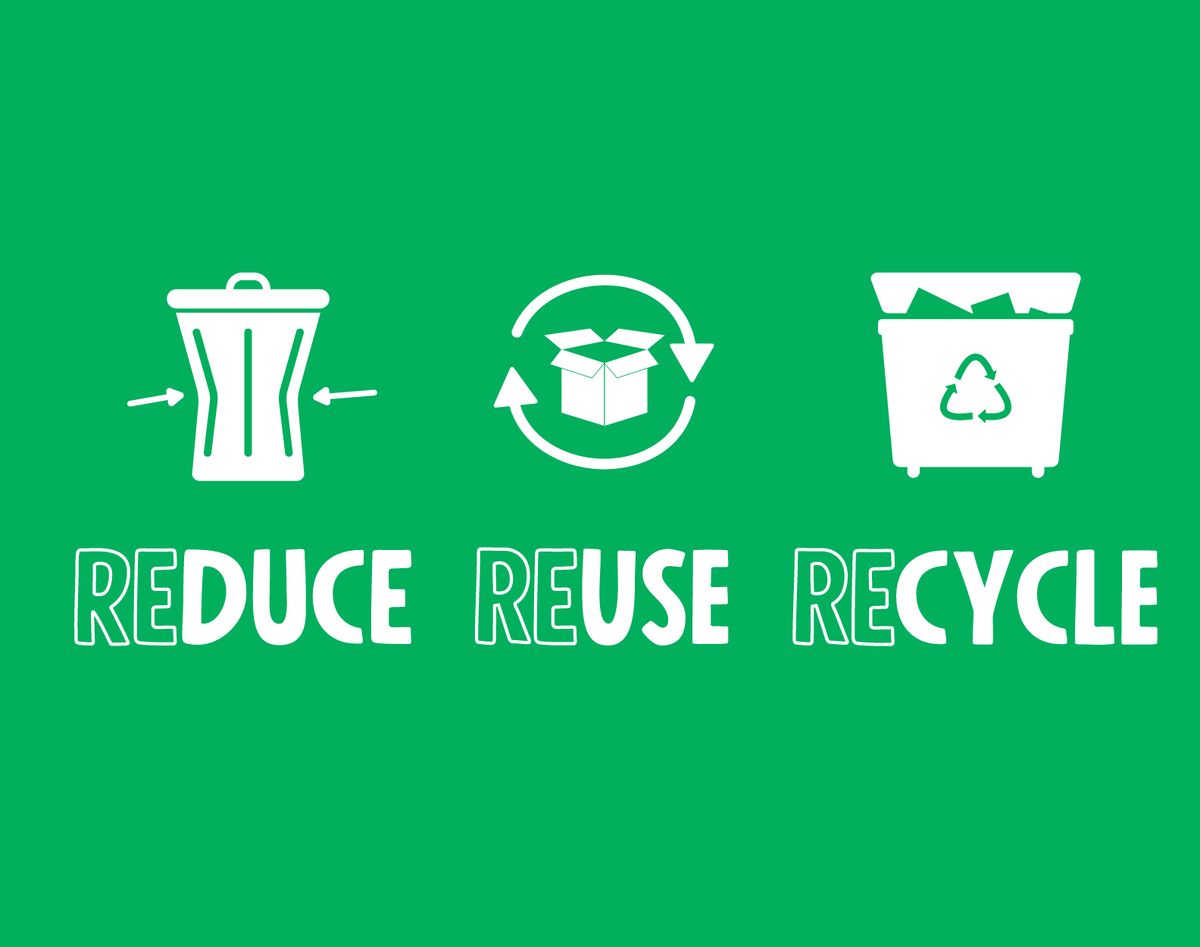Reduce, Reuse, Recycle: Working Together for Sustainable Consumption and Production and SDG 12
Join the movement to reduce waste and protect the planet! Discover practical ways to implement SDG 12 and sustainable consumption in your daily life.

Reduce, reuse, and recycle are three simple words that can have a significant impact on our planet. We can lessen the waste we produce, save resources, and safeguard the environment by incorporating these practises into our daily lives. But how can we work together and what can you do to make a difference?
Collaboration is the simple solution. We can accomplish so much more when we band together and work towards a common objective than we ever could on our own. 10 easy ways we can work to reduce, reuse, and recycle our waste are:
1. Educate yourself and others
Teaching others and ourselves the value of reducing, reusing, and recycling is the first step in collaborating. Inform your friends, family, and coworkers about what you know. Invite others to join you in your efforts by starting conversations about waste reduction.
2. Take part in community initiatives
Programs for waste reduction and recycling are in place in many communities. Sort and dispose of your waste properly to participate in these programmes. By letting others in your community know about these programmes and their advantages, you can encourage them to take similar action.
3. Purchase and sell used items
A great way to cut waste and save resources is to buy and sell used items. Consider buying used items from thrift shops, garage sales, or online marketplaces rather than brand-new ones. Sell your used items instead of throwing them away, which will prevent them from going to waste and allow someone else to use them.
4. Use reusable containers, bags, and bottles.
The main waste producers are plastic bottles, bags, and containers. Annually, approximately 500 billion plastic bags are used worldwide, which only have a .'working life' of 15 minutes. Use reusable items as opposed to disposable ones. Invest in reusable packaging, water bottles, and bags, and motivate others to follow suit. By doing this, we can save resources and lessen the amount of waste we produce.
5. composting leftover food
The amount of food wasted greatly contributes to greenhouse gas emissions. Compost it as opposed to throwing it away. The UK throws away around 9.5 million tonnes of food waste in a single year. Food waste can be composted to create nutrient-rich soil for gardening and to help reduce methane emissions. 8.4 million people in the UK are in food poverty, and so by reducing food wastage through planning and buying less at the supermarket, you can also help those in need.
6. Cut back on single-use items
Straws, utensils, and coffee cups are examples of single-use items that increase our waste production. Change to reusable items instead such as metal straws. Bring your own coffee cup when you get coffee and always carry a reusable straw and cutlery with you. Encourage the use of reusable items at your place of employment. Many coffee shops across the UK will often give you discounts if you have a reusable cup.
7. Give away unwanted items
Consider giving items to a charity if you no longer need or want them. Many groups welcome donations of gently used items that can be sold to raise money for their initiatives. This not only prevents waste from going to landfills, but it also helps a good cause.
8. Buy from environmentally conscious companies.
Support companies that place a high priority on sustainability and waste management. You can support environmentally friendly businesses and persuade others to follow suit by making purchases from them.
9. Participate in local cleanup efforts
Working together to reduce waste is made possible by participating in community cleanup initiatives. These initiatives promote waste reduction and aid in maintaining a clean environment. To have a bigger impact, invite others to join you in these initiatives. Get in touch with your local council and see what you can do to help.
10. Encourage change
Last but not least, advocate for change if you are passionate about sustainability and waste reduction. Join advocacy organisations, send letters to your elected officials, and sign petitions in support of environmental causes. Together, we can bring about real change and safeguard the planet for future generations.
SDG 12- Responsible Consumption and Production

SDG 12 stands for Sustainable Development Goal 12, a component of the 2030 Agenda for Sustainable Development of the United Nations. By encouraging resource efficiency, reducing waste and pollution, and supporting innovation and technological advancements that can enhance the sustainability of goods and services, the goal aims to ensure sustainable consumption and production patterns.
Putting it simply, SDG 12 is about finding ways to live sustainably and use the planet's resources responsibly, all while ensuring that future generations will be able to meet their own needs.
It is hard to overestimate the significance of SDG 12 in achieving sustainable production and consumption methods. We can build a future that is more sustainable for both the planet and ourselves by reducing waste and encouraging responsible consumption. A crucial step in achieving SDG 12 is putting the principles of "reduce, reuse, and recycle" into practise. We can significantly impact waste reduction and the promotion of sustainable consumption and production practises by cooperating with the UN and other organisations. SDG 12's guiding principles can be applied to all aspects of our lives, which is a significant step towards building a more sustainable future.
What can you do to support the environment using SDG 12 and the UN? Here are some suggestions:
Reduce your carbon footprint: The amount of greenhouse gas emissions resulting from your daily activities is known as your carbon footprint. By using public transportation, eating less meat, and reducing waste, you can lower your carbon footprint.
Support environmentally friendly goods and services by taking into account their environmental impact when making purchases. Look for products that use less energy, produce little waste, and are made from sustainable materials.
Participate in neighbourhood environmental initiatives by joining a group, cleaning up a local beach, or supporting sustainable farming techniques used by nearby farmers.
Contact your local elected officials and ask them to take action on climate change as a change agent. Send letters to businesses that, in your opinion, aren't doing enough to lessen their carbon footprint.
SDG 12 is more than just preserving the environment. It also involves building a better future for all people, one in which resources are used sustainably and fairly. We can guarantee that future generations will inherit a healthy and vibrant planet by acting now.
SDG 12 is an essential component of the UN's 2030 Agenda for Sustainable Development and aims to promote sustainable patterns of consumption and production. You can help achieve this goal by lowering your carbon footprint, promoting eco-friendly goods and services, getting involved in regional environmental projects, and speaking out against injustice. We can build a more sustainable future for ourselves and future generations if we work together.
My next blog post will discuss what my university, Swansea, does to protect the environment. Thank you for reading.




